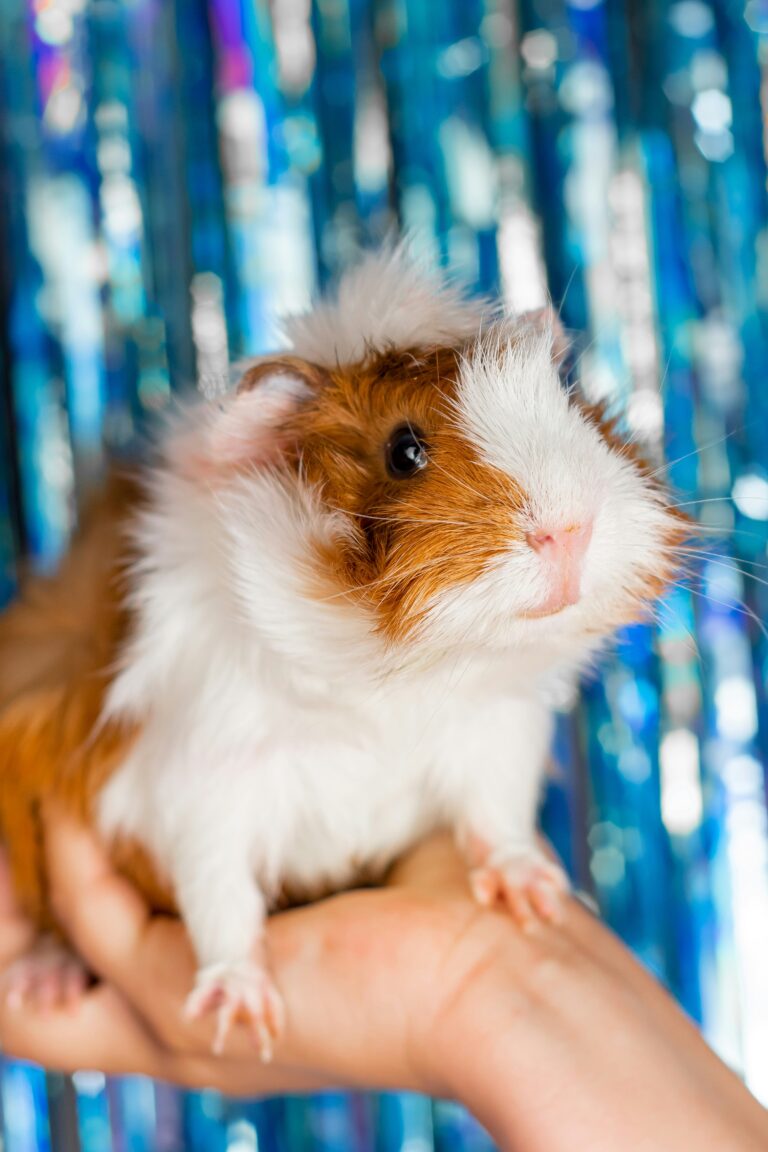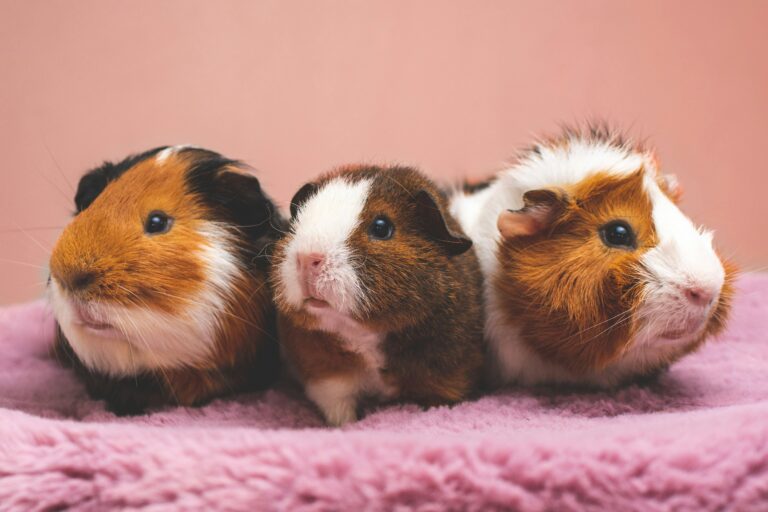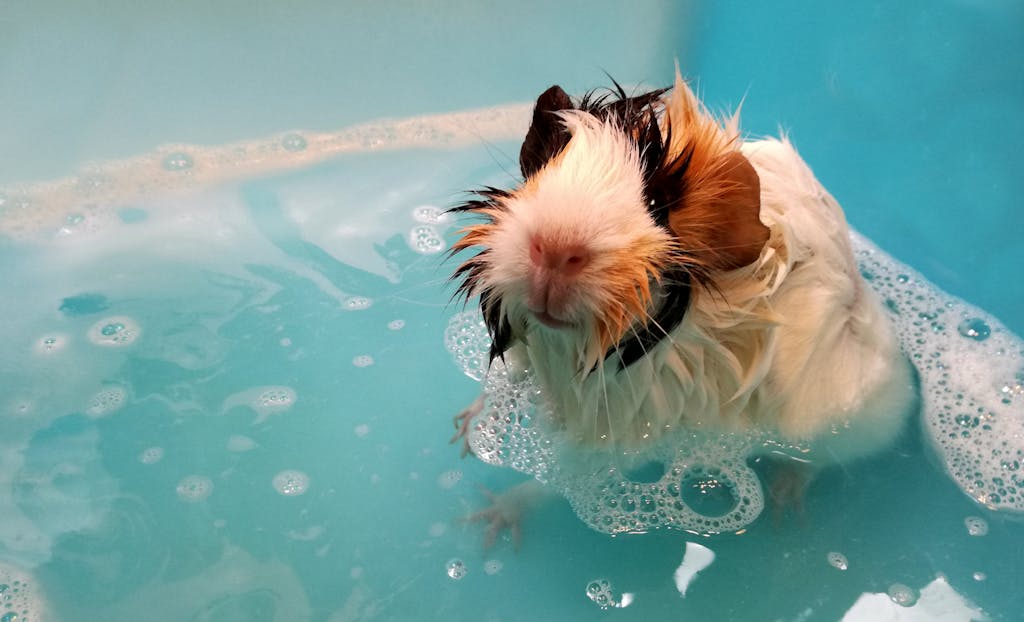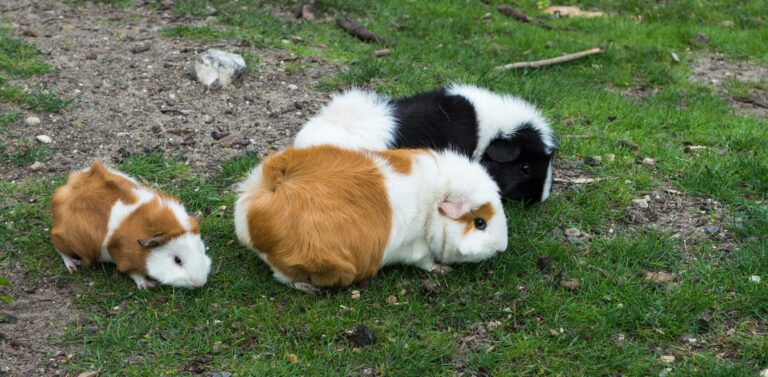Is My Guinea Pig Sick?
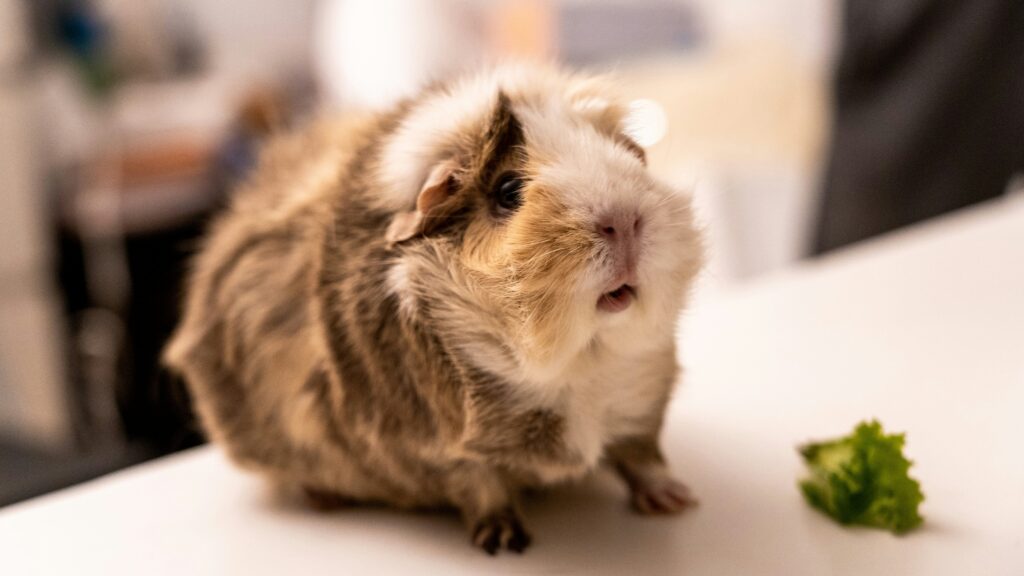
Guinea pigs are generally hardy and resilient, but they can still fall prey to various illnesses and health issues. Because of this, it is important to stay vigilant about your pet’s health and well-being!
In this guide, we will delve into some of the signs and symptoms of illness in guinea pigs, equipping you with the knowledge and confidence to identify potential health concerns early and take prompt action when necessary.
Understanding Normal Behavior
Before we explore the indicators of illness in guinea pigs, it’s crucial to familiarize ourselves with their typical behaviors and habits.
Guinea pigs are naturally curious, social, and active animals, displaying behaviors such as wheeking, popcorning, and exploring their surroundings with enthusiasm. They have hearty appetites and enjoy munching on hay, fresh vegetables, and pellets throughout the day.
By observing your guinea pig’s normal behavior patterns, you’ll be better equipped to recognize deviations that may signal underlying health issues.
Signs of Illness
While guinea pigs are adept at hiding signs of weakness or discomfort, there are several common symptoms that may indicate illness or distress:
Changes in Appetite: A sudden decrease in appetite or refusal to eat can be a red flag for various health issues, including dental problems, gastrointestinal disturbances, or underlying illnesses.
Weight Loss: Sometimes going hand in hand with changes in appetite, unexplained weight loss or a noticeable decrease in body condition may indicate underlying health concerns, such as dental issues, digestive disorders, or systemic illnesses.
Lethargy and Weakness: Guinea pigs are typically active and alert creatures, so any signs of lethargy, weakness, or reluctance to move should be taken seriously and investigated promptly.
Respiratory Symptoms: Symptoms such as sneezing, coughing, wheezing, or labored breathing may indicate respiratory infections, allergies, or other respiratory conditions requiring veterinary attention.
Eye and Nose Discharge: Excessive or discolored discharge from the eyes or nose can be indicative of respiratory infections, allergies, or ocular issues that warrant veterinary evaluation and treatment.
Changes in Feces and Urine: Alterations in the color, consistency, or frequency of feces and urine may signal digestive issues, urinary tract infections, or other gastrointestinal problems requiring veterinary intervention.
Skin and Coat Abnormalities: Skin lesions, hair loss, itching, or inflammation can be indicative of skin infections, parasites, allergies, or other dermatological conditions that require veterinary care.
Behavioral Changes: Any significant changes in behavior, such as increased aggression, excessive scratching, or withdrawal from social interaction, should be noted and investigated to rule out underlying health concerns or environmental stressors.
When to Seek Veterinary Care
Prompt veterinary intervention is crucial when it comes to safeguarding the health and well-being of your guinea pig. While minor fluctuations in behavior or appetite may not always warrant immediate medical attention, certain symptoms should prompt you to seek veterinary care without delay:
Difficulty Breathing: Respiratory distress, such as rapid or labored breathing, gasping, or wheezing, requires urgent veterinary attention, as it may indicate severe respiratory illness or obstruction.
Severe Injury: Traumatic injuries, such as fractures, lacerations, or severe bleeding, necessitate immediate veterinary care to assess and address the extent of the injury and provide appropriate treatment.
Prolonged Anorexia: If your guinea pig refuses to eat for more than 24 hours or shows persistent signs of decreased appetite despite attempts to encourage feeding, veterinary evaluation is warranted to identify and address the underlying cause.
Acute Pain or Distress: Signs of acute pain, such as vocalization, hunching, teeth grinding, or reluctance to move, require prompt veterinary assessment and pain management to alleviate discomfort and prevent further complications.
Seizures or Loss of Consciousness: Any episodes of seizures, convulsions, or loss of consciousness should be treated as medical emergencies, necessitating immediate veterinary attention to determine the underlying cause and provide appropriate care.
Conclusion
Being able to recognize the signs of illness in your guinea pig and knowing when to seek veterinary care are essential aspects of responsible pet ownership.
By staying observant, proactive, and responsive to changes in your guinea pig’s health and behavior, you can ensure prompt diagnosis and treatment of any potential health concerns, thereby maximizing your furry friend’s quality of life and longevity.
Remember, your veterinarian is your trusted partner in safeguarding the health and well-being of your guinea pig, so don’t hesitate to seek their expertise and guidance whenever needed.
With proper care and attention, you can enjoy a fulfilling and enriching relationship with your cherished guinea pig for years to come.

